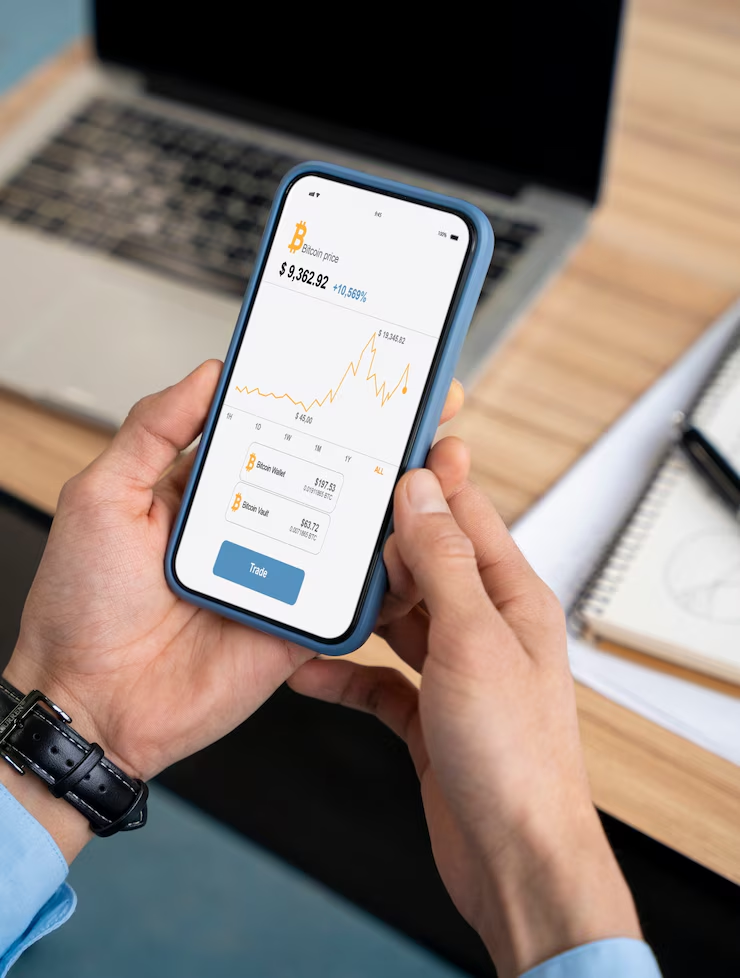MetaTrader 4 (MT4) and MetaTrader 5 (MT5) are two of the most popular trading platforms for forex and other financial instruments. Both platforms, developed by MetaQuotes, offer robust tools for market analysis, trade execution, and automation. However, each has its strengths and weaknesses, making the choice between them highly dependent on your trading goals and experience.
This guide dives into the key differences and features of MT4 and MT5 to help you decide which app best suits your needs.
MetaTrader 4: A Forex Trader’s Favorite
Launched in 2005, MT4 has established itself as the go-to platform for forex trading. Its user-friendly interface and lightweight performance make it a preferred choice for beginners and experienced traders alike.
Key Features of MT4
- Forex Specialization: MT4 is tailored specifically for forex trading, offering tools designed for currency markets.
- Customizable Indicators and Expert Advisors (EAs): Traders can use or create custom scripts to enhance their trading strategies.
- Robust Charting Tools: Includes nine timeframes, 30 technical indicators, and an array of chart customization options.
- Community Support: A vast user base ensures a wealth of tutorials, forums, and resources for troubleshooting and strategy building.
- Low System Requirements: MT4 runs smoothly even on older devices, making it accessible for all traders.
Limitations of MT4
- Limited functionality for non-forex instruments like stocks or commodities.
- No economic calendar or integrated market depth tools.
- Lacks advanced order types like stop-limit orders.
Who Should Use MT4?
- Forex-only traders.
- Beginners seeking an intuitive and lightweight trading platform.
- Those heavily reliant on custom indicators and automated trading tools.
MetaTrader 5: A Multi-Asset Powerhouse
Released in 2010, MT5 was designed to address the limitations of MT4 and accommodate a broader range of asset classes. While it retains some features of MT4, MT5 offers advanced tools for multi-asset trading and deeper market analysis.
Key Features of MT5
- Multi-Asset Support: Trade forex, stocks, commodities, and futures on a single platform.
- Expanded Charting Options: MT5 includes 21 timeframes and 80+ built-in technical indicators.
- Market Depth and DOM (Depth of Market): Provides detailed insights into market liquidity and order flow.
- Integrated Economic Calendar: Stay informed about market-moving events directly within the app.
- Advanced Order Types: Offers additional order types like buy stop-limit and sell stop-limit for greater flexibility.
- Faster Backtesting and Execution: Ideal for algorithmic trading with high-speed processing.
Limitations of MT5
- Steeper learning curve for beginners.
- Limited compatibility with MT4 scripts and indicators.
- Higher system requirements compared to MT4.
Who Should Use MT5?
- Traders who diversify across multiple asset classes.
- Advanced users who need sophisticated tools and features.
- Those with modern devices capable of handling more demanding software.
Key Differences Between MT4 and MT5
| Feature | MetaTrader 4 (MT4) | MetaTrader 5 (MT5) |
|---|---|---|
| Asset Classes | Forex | Forex, stocks, commodities |
| Timeframes | 9 | 21 |
| Technical Indicators | 30 | 80+ |
| Market Depth (DOM) | Not available | Available |
| Order Types | Basic | Advanced |
| Economic Calendar | Not integrated | Integrated |
| Backward Compatibility | Widely compatible | Limited compatibility |
| System Requirements | Low | Higher |
Making the Right Choice for Your Trading Style
Choose MT4 If:
- You’re primarily trading forex.
- You’re new to trading and want a simple, user-friendly platform.
- Your strategy relies on custom EAs and indicators developed for MT4.
Choose MT5 If:
- You’re trading across multiple markets (e.g., forex, stocks, commodities).
- You require advanced tools like market depth and additional order types.
- You want integrated features like an economic calendar and multi-threaded backtesting.
The Future of MetaTrader Platforms
Although MT4 remains a favorite, MetaQuotes has shifted its focus toward MT5, encouraging brokers and traders to adopt the newer platform. MT5’s expanded capabilities make it better suited for modern trading needs, especially as traders diversify their portfolios beyond forex.
However, MT4’s simplicity and reliability ensure its continued relevance for forex traders, particularly beginners.
Conclusion
The choice between MT4 and MT5 boils down to your trading preferences, experience, and asset focus. While MT4 offers simplicity and specialization in forex trading, MT5 provides versatility and advanced features for traders venturing into diverse markets.
Evaluate your trading needs carefully, and you’ll find that both platforms are capable of supporting your trading journey. Whether you’re starting out or seeking to refine your strategies, MetaTrader has the tools to help you succeed.

